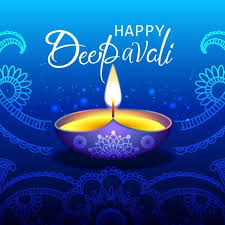Introduction
Festivals are the fabric of our religion. They are key not just because they are a reason for joy, but also because they provide the necessary social rejuvenation. On a festive day, it is fascinating to see people trying to uphold their traditions at least for that particular day. One can observe pronounced religious fervour, heritage-based clothing, cultural greetings and even traditional sweets that adorn the festivities. Probably Deepavali can be construed as the crown of all of our festivals as it cuts across states, languages, social strata and perhaps even religious boundaries.
Though termed as a ‘Festival of Lights’ (In Sanskrit, Deepa is a lamp while Aavali is a line, thus meaning ‘An arrangement of lamps’), the festival is celebrated for a multitude of reasons across different regions. Here are some of the Puranik accounts for celebrating the festival:
Lord Krishna’s victory over Narakasura
In South India, Deepavali is celebrated to commemorate the victory of Lord Krishna over the Demon Narakasura, who ruled over Pragjyotishapura (present day Assam). As per the prayers of the slain Narakasura, Deepavali is celebrated as a day of triumph of good over evil. The day before Diwali is celebrated as Naraka Chaturdasi.
Lord Rama’s return to Ayodhya
In Northern parts of India, Deepavali is celebrated as the day when Lord Rama returned to Ayodhya along with Goddess Sita and Lakshmana after vanquishing the demon Ravana. On this day, the citizens of Ayodhya celebrated by lighting lamps in their houses, corridors and in the pathways. It is believed that this tradition continues till day.
Lakshmi Pooja
This day is also considered by some communities as Lakshmi Pooja who is the goddess of wealth and prosperity. As per Padma Purana, Goddess Lakshmi emerged from the Milky Ocean during the churning of the Ocean by Devas and Asuras for obtaining Amruta (Nectar). As Goddess Lakshmi is believed to have emerged on this very same day, she is offered oblations on this day. In some states such as Gujarat, the festival signifies the start of a new year, thus accounting restarts that day.

It is fascinating to note that Deepavali has stories associated from all the three Yugas – Kruta Yuga (Lakshmi Pooja), Tretha Yuga (Lord Rama) and Dwapara Yuga (Lord Krishna)!
Apart from the above, Deepavali also has additional flavours specific to certain regions as shown below:
Govardhan Pooja/Annakoot
In some rural communities of the North, West and Central regions of India, Govardhan Pooja is celebrated alongside Deepavali to honour the legend of Lord Krishna protecting the cowherds from the incessant rains forced upon them by Lord Indra. As he lifted Govardhan mountain to protect them, offerings are given to Lord Krishna as well as to the Govardhana hill. The Annakoot festival is also celebrated during this time when literally “mountain of food” (Annakoota in Sanskrit) is dedicated to Lord Krishna before shared among the community. In Gujarat, this is the first day of the new year and celebrated through the purchase of essentials, such as salt, offering prayers to Krishna and visiting temples.
Bhai Duj
In some other communities, Bhai Duj is celebrated along with Deepavali to celebrate the bond between brother and sister. This festive day is interpreted by some to symbolise Yama’s sister Yamuna welcoming Yama with a tilaka. Others interpret it as the arrival of Krishna at his sister Subhadra’s place after defeating Narakasura. On this day, sisters invite their brothers for a sumptuous meal including sweets. On the day, the brother declares his duty to protect his sister, while the sister offers blessings.
Viswakarma Pooja
Lord Viswakarma is regarded as the creator of the world. As per belief, he constructed the holy city of Dwarka. He is the divine carpenter who came up with Sthapatya Veda, the science of mechanics and architecture. While most of the artisan communities celebrate Viswakarma Pooja in September, some of them celebrate it during Deepavali as well. On this day, the looms, tools of trade, machines and workplaces are cleaned and prayers offered to Lord Viswakarma.
Other Religions/Beliefs
In Jainism, Diwali marks nirvana (spiritual awakening) of Lord Mahavira ; As per Sikhism, this day is celebrated as the day on which Guru Hargobind Ji, the Sixth Sikh Guru, was freed from imprisonment.
A Dark Deepavali
While the whole nation rejoices on this auspicious day, there is one region which mourns for its people forever on this day. The residents of Melkote, Karnataka observe Naraka Chaturdasi as a day of mourning. It is on this day, two centuries ago that Tipu Sultan and his army massacred in cold blood, over 800 families including men, women and children on suspicion of siding with the British. Melkote turned into a ghost town overnight. While we celebrate Deepavali, let us have a thought for those who were slain on that dark night.


Very informative.Good writing.
Thanks madam for your kind words.